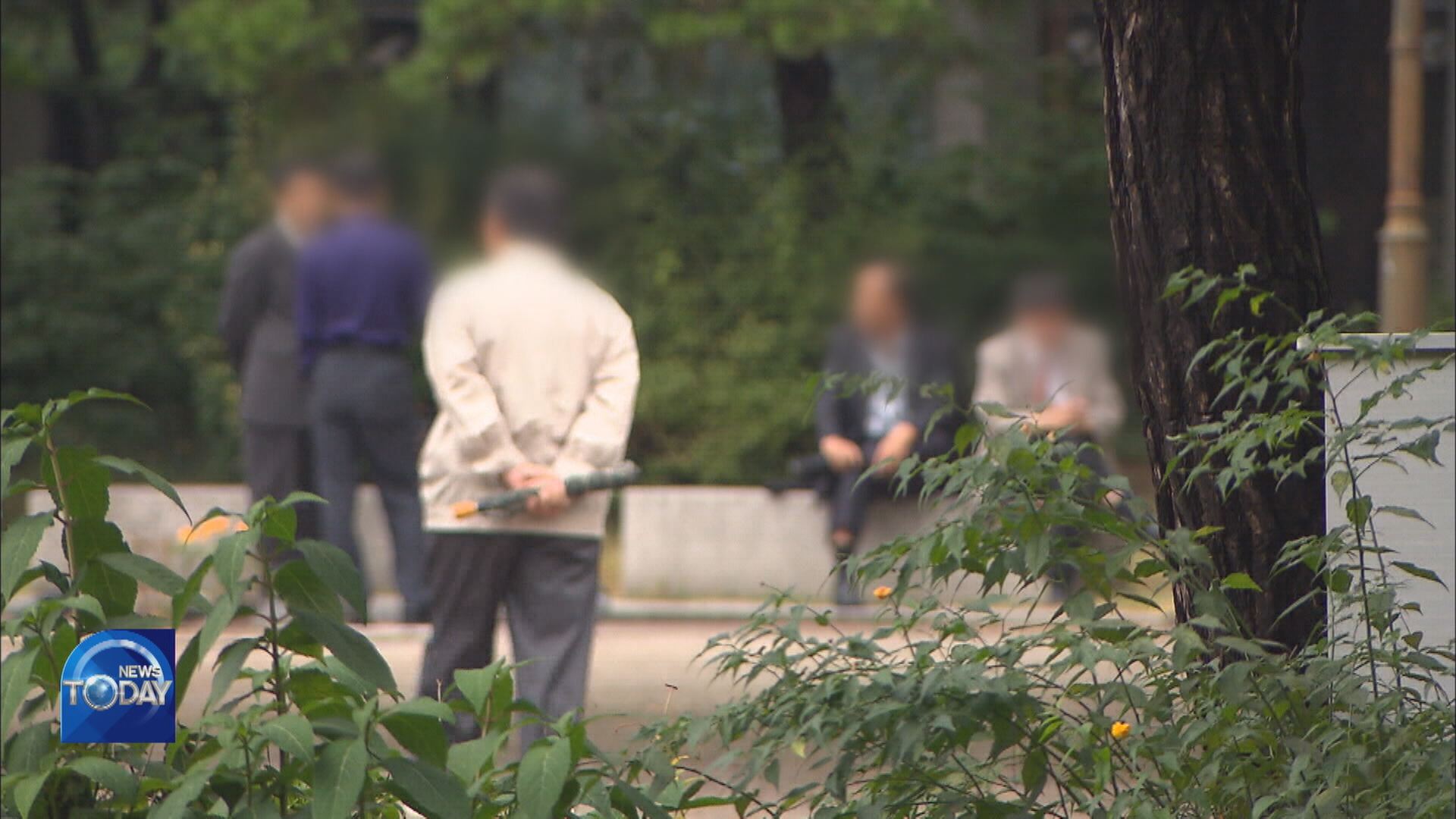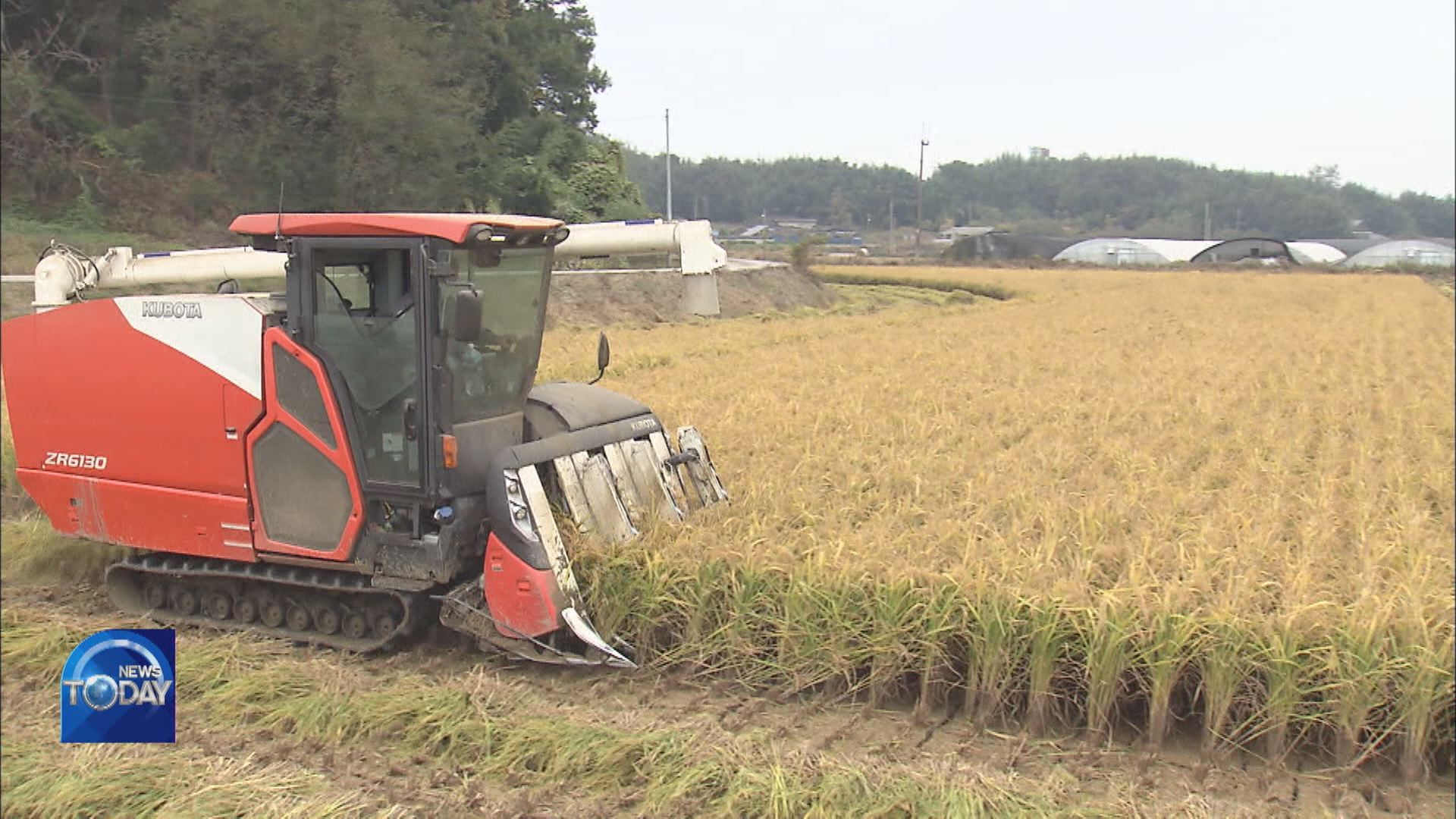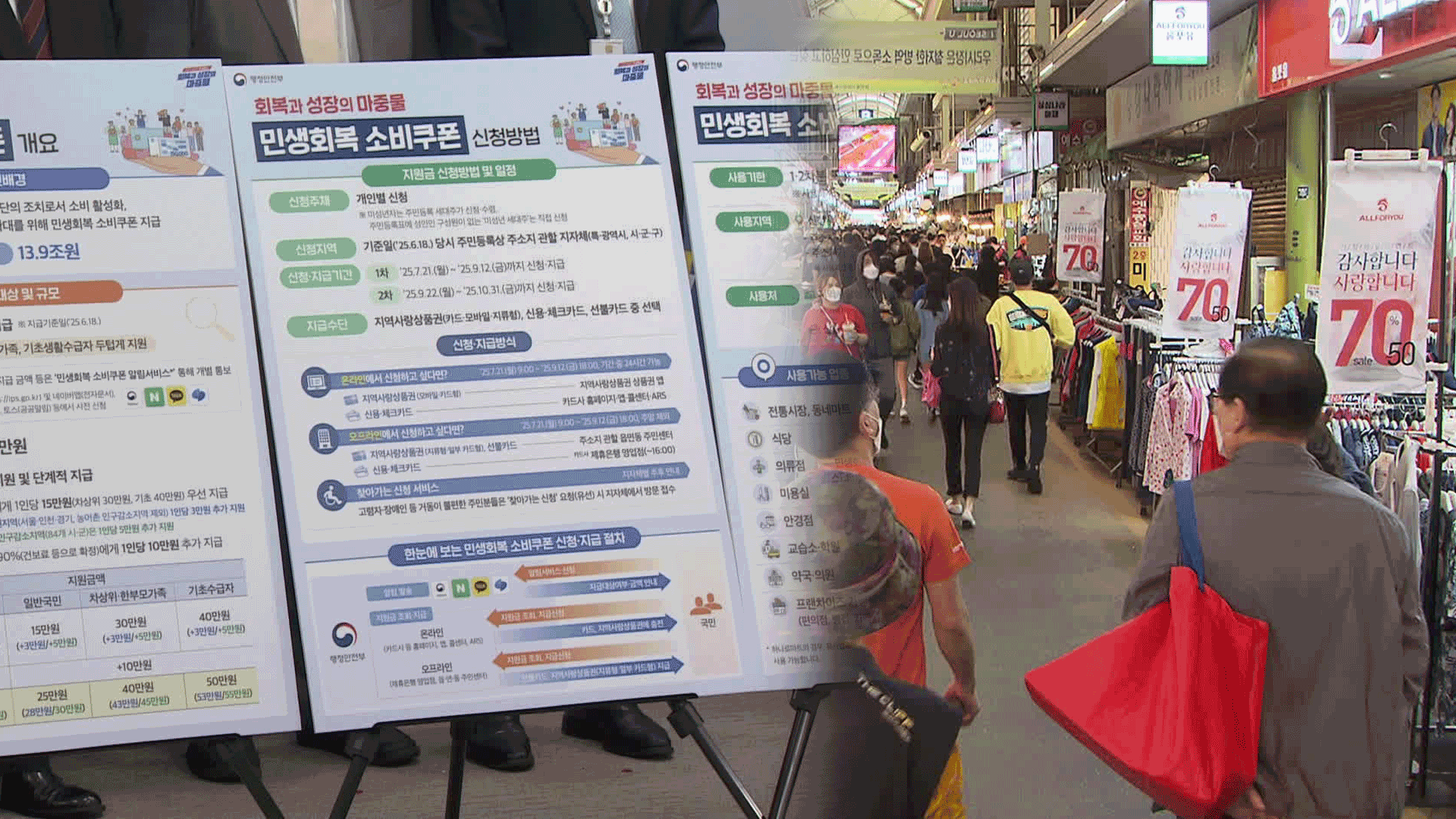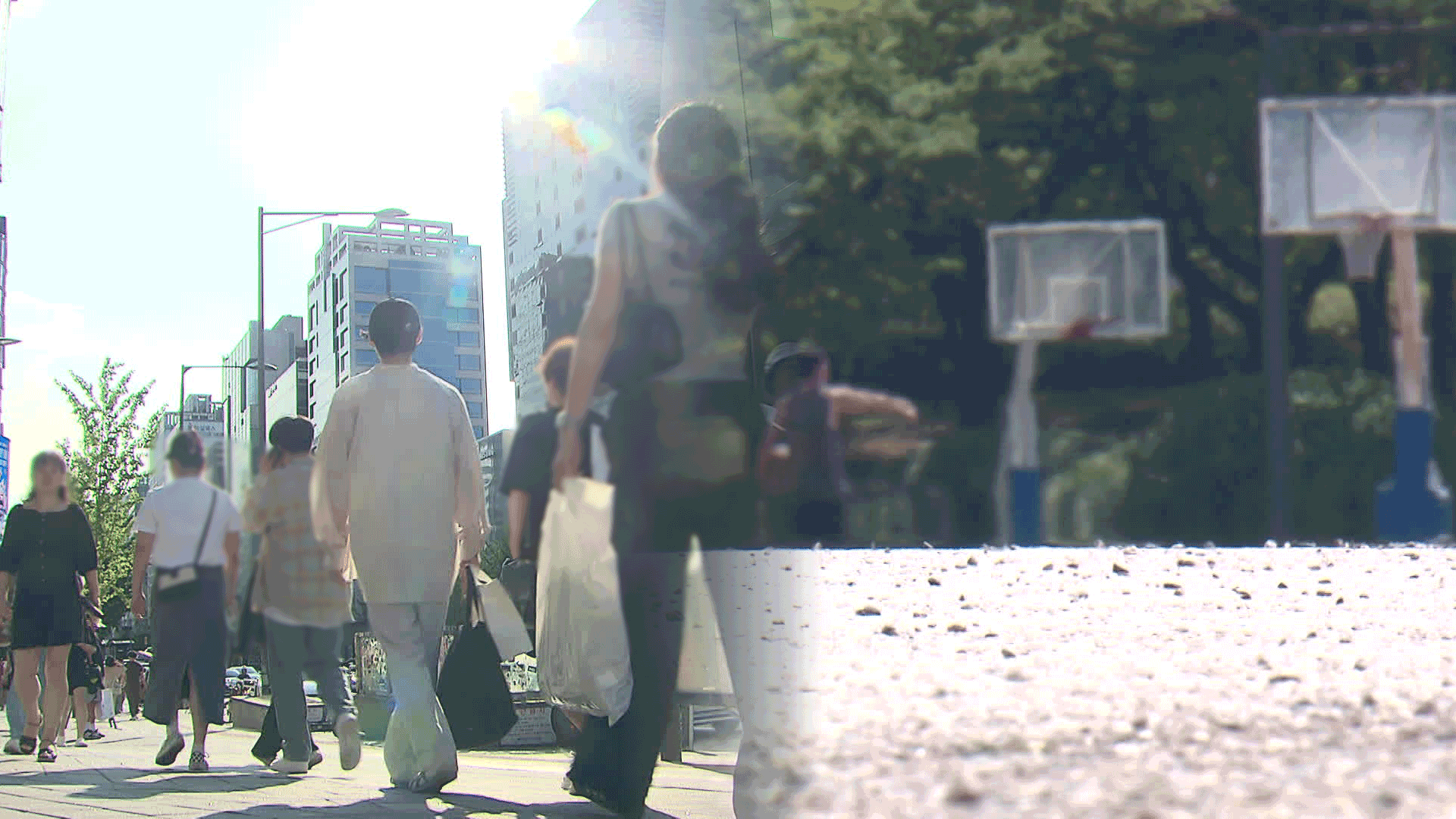CHANGES IN SENIOR LIFE STYLES
입력 2021.06.08 (15:30)
수정 2021.06.08 (16:46)
읽어주기 기능은 크롬기반의
브라우저에서만 사용하실 수 있습니다.
[Anchor Lead]
The results of a government survey on the elderly population show more than 70 percent of working seniors have jobs to make a living. As more and more elderly people become financially independent, fewer of them want to live with their children.
[Pkg]
This 71-year-old woman participates in asenior hiring project run by the local district office. She commutes to a cafeteria three times a week to cook. You may assume it's difficult but she says she enjoys the work.
[Soundbite] Han Chu-ja(71) : "I can earn money to pay for my own medicine and food. It's rewarding. I hope I can stay healthy so I can continue working."
Four out of ten elderly residents in Korea are engaged in economic activities. About half of them have blue-collar jobs. They are followed by jobs in farming and then the service sector. In 2008, the median income of elderly workers stood at 7 million won. Last year it was found to have more than doubled. This can be attributed to an increase in wages and private pension funds. The largest portion of seniors' incomes came from public payments such as the national pension and state subsidies, which account for 27.5 percent. However, that amount still lags behind the OECD average. More than 73 percent of the respondents said they worked to make a living. As more elderly become financially independent, they are more inclined to live separately from their children. In 2008, about 32 percent of the polled said they wanted to live with their children. Last year that percentage fell to 12.8 percent. Nearly 80 percent of the elderly live either alone or with just their spouse.
[Soundbite] Yang Sung-il(Vice minister of health and welfare) : "The percentage of seniors who keep in touch with their friends rose from 64.2 percent in 2008 to 71 percent in 2020. This shows that elderly residents are leading more diverse lifestyles that don't necessarily focus on their families only."
The survey was conducted by the Korea Institute for Health and Social Affairs on some 10,000 seniors over nine months last year. The confidence level is 95 percent, plus/minus 1 percent.
The results of a government survey on the elderly population show more than 70 percent of working seniors have jobs to make a living. As more and more elderly people become financially independent, fewer of them want to live with their children.
[Pkg]
This 71-year-old woman participates in asenior hiring project run by the local district office. She commutes to a cafeteria three times a week to cook. You may assume it's difficult but she says she enjoys the work.
[Soundbite] Han Chu-ja(71) : "I can earn money to pay for my own medicine and food. It's rewarding. I hope I can stay healthy so I can continue working."
Four out of ten elderly residents in Korea are engaged in economic activities. About half of them have blue-collar jobs. They are followed by jobs in farming and then the service sector. In 2008, the median income of elderly workers stood at 7 million won. Last year it was found to have more than doubled. This can be attributed to an increase in wages and private pension funds. The largest portion of seniors' incomes came from public payments such as the national pension and state subsidies, which account for 27.5 percent. However, that amount still lags behind the OECD average. More than 73 percent of the respondents said they worked to make a living. As more elderly become financially independent, they are more inclined to live separately from their children. In 2008, about 32 percent of the polled said they wanted to live with their children. Last year that percentage fell to 12.8 percent. Nearly 80 percent of the elderly live either alone or with just their spouse.
[Soundbite] Yang Sung-il(Vice minister of health and welfare) : "The percentage of seniors who keep in touch with their friends rose from 64.2 percent in 2008 to 71 percent in 2020. This shows that elderly residents are leading more diverse lifestyles that don't necessarily focus on their families only."
The survey was conducted by the Korea Institute for Health and Social Affairs on some 10,000 seniors over nine months last year. The confidence level is 95 percent, plus/minus 1 percent.
■ 제보하기
▷ 카카오톡 : 'KBS제보' 검색, 채널 추가
▷ 전화 : 02-781-1234, 4444
▷ 이메일 : kbs1234@kbs.co.kr
▷ 유튜브, 네이버, 카카오에서도 KBS뉴스를 구독해주세요!
- CHANGES IN SENIOR LIFE STYLES
-
- 입력 2021-06-08 15:30:37
- 수정2021-06-08 16:46:35

[Anchor Lead]
The results of a government survey on the elderly population show more than 70 percent of working seniors have jobs to make a living. As more and more elderly people become financially independent, fewer of them want to live with their children.
[Pkg]
This 71-year-old woman participates in asenior hiring project run by the local district office. She commutes to a cafeteria three times a week to cook. You may assume it's difficult but she says she enjoys the work.
[Soundbite] Han Chu-ja(71) : "I can earn money to pay for my own medicine and food. It's rewarding. I hope I can stay healthy so I can continue working."
Four out of ten elderly residents in Korea are engaged in economic activities. About half of them have blue-collar jobs. They are followed by jobs in farming and then the service sector. In 2008, the median income of elderly workers stood at 7 million won. Last year it was found to have more than doubled. This can be attributed to an increase in wages and private pension funds. The largest portion of seniors' incomes came from public payments such as the national pension and state subsidies, which account for 27.5 percent. However, that amount still lags behind the OECD average. More than 73 percent of the respondents said they worked to make a living. As more elderly become financially independent, they are more inclined to live separately from their children. In 2008, about 32 percent of the polled said they wanted to live with their children. Last year that percentage fell to 12.8 percent. Nearly 80 percent of the elderly live either alone or with just their spouse.
[Soundbite] Yang Sung-il(Vice minister of health and welfare) : "The percentage of seniors who keep in touch with their friends rose from 64.2 percent in 2008 to 71 percent in 2020. This shows that elderly residents are leading more diverse lifestyles that don't necessarily focus on their families only."
The survey was conducted by the Korea Institute for Health and Social Affairs on some 10,000 seniors over nine months last year. The confidence level is 95 percent, plus/minus 1 percent.
The results of a government survey on the elderly population show more than 70 percent of working seniors have jobs to make a living. As more and more elderly people become financially independent, fewer of them want to live with their children.
[Pkg]
This 71-year-old woman participates in asenior hiring project run by the local district office. She commutes to a cafeteria three times a week to cook. You may assume it's difficult but she says she enjoys the work.
[Soundbite] Han Chu-ja(71) : "I can earn money to pay for my own medicine and food. It's rewarding. I hope I can stay healthy so I can continue working."
Four out of ten elderly residents in Korea are engaged in economic activities. About half of them have blue-collar jobs. They are followed by jobs in farming and then the service sector. In 2008, the median income of elderly workers stood at 7 million won. Last year it was found to have more than doubled. This can be attributed to an increase in wages and private pension funds. The largest portion of seniors' incomes came from public payments such as the national pension and state subsidies, which account for 27.5 percent. However, that amount still lags behind the OECD average. More than 73 percent of the respondents said they worked to make a living. As more elderly become financially independent, they are more inclined to live separately from their children. In 2008, about 32 percent of the polled said they wanted to live with their children. Last year that percentage fell to 12.8 percent. Nearly 80 percent of the elderly live either alone or with just their spouse.
[Soundbite] Yang Sung-il(Vice minister of health and welfare) : "The percentage of seniors who keep in touch with their friends rose from 64.2 percent in 2008 to 71 percent in 2020. This shows that elderly residents are leading more diverse lifestyles that don't necessarily focus on their families only."
The survey was conducted by the Korea Institute for Health and Social Affairs on some 10,000 seniors over nine months last year. The confidence level is 95 percent, plus/minus 1 percent.
이 기사가 좋으셨다면
-
좋아요
0
-
응원해요
0
-
후속 원해요
0

















이 기사에 대한 의견을 남겨주세요.